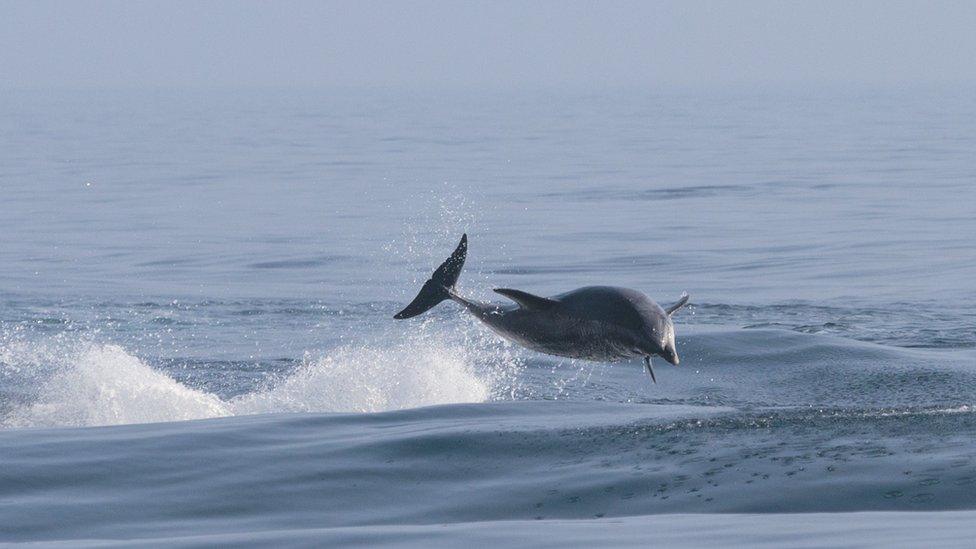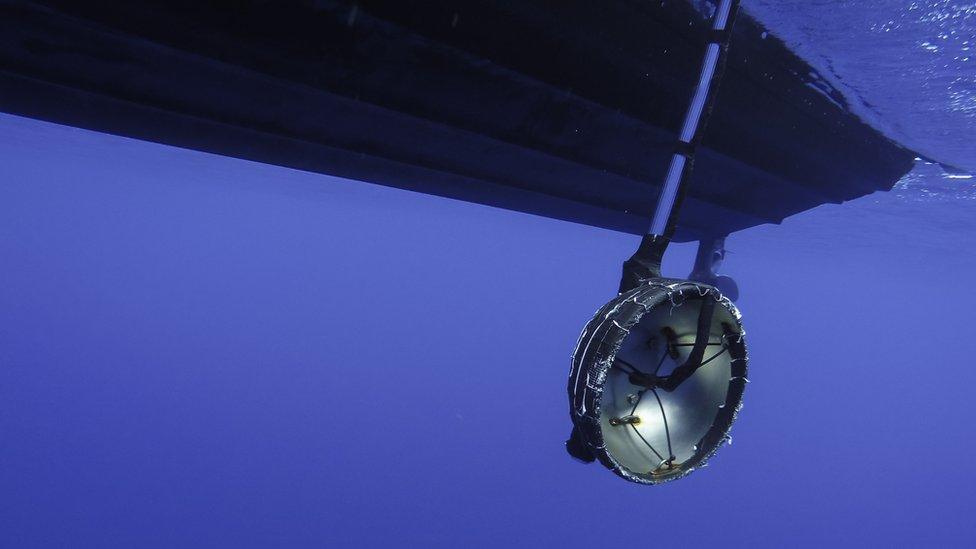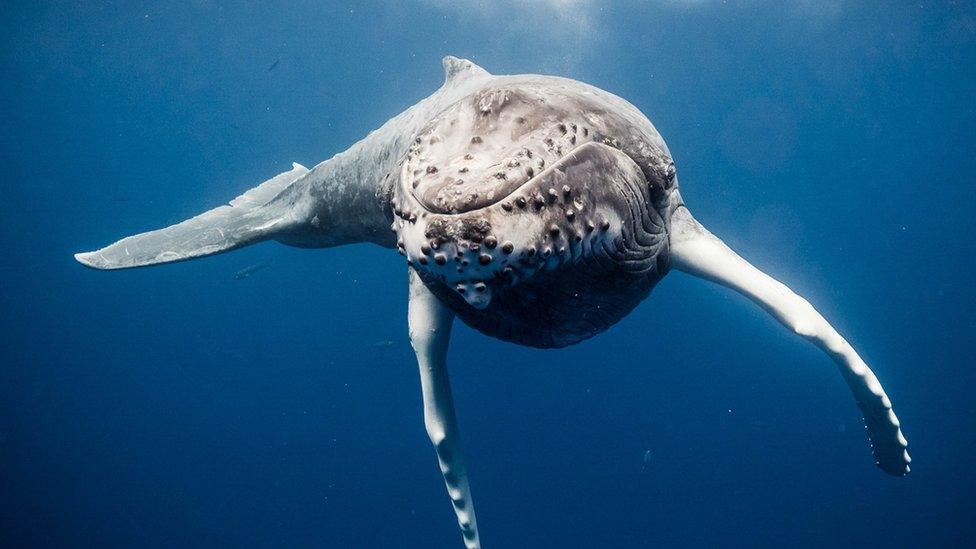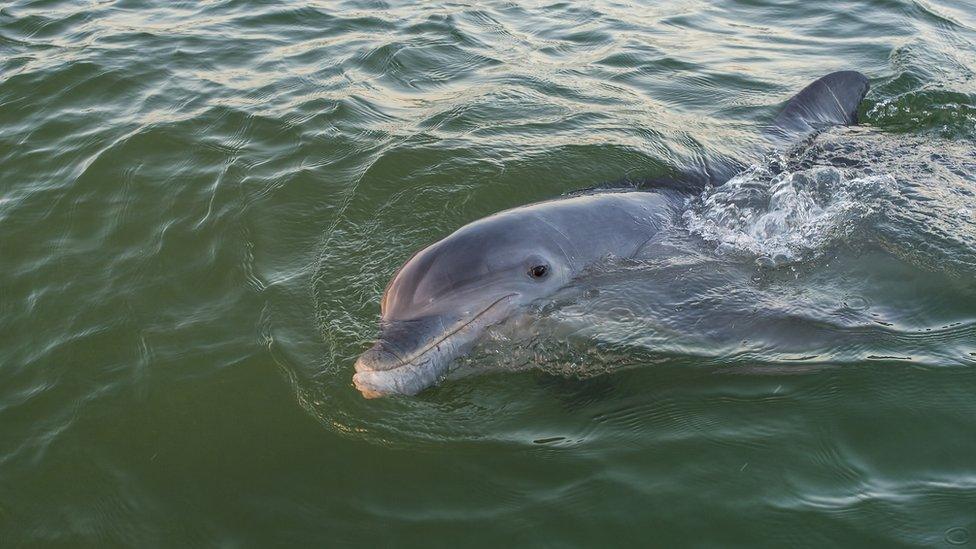Whale and dolphin songs recorded in Scottish waters
- Published
- comments

A year-long study conducted by the Scottish Association for Marine Science has recorded whale and dolphin songs in Scottish waters.
Underwater microphones were used in the sea off the Hebrides and an area of ocean known as the continental shelf.
Researchers said a huge soundscape of whale songs as well as clicks and whistles were detected.
Their research was published in the journal Frontiers in Remote Sensing and is hoped to help conservationists and their projects in protecting sea mammals.
How where the sounds detected?

The Scottish Association for Marine Science and researchers from Plymouth university placed microphones underwater.
Ten microphones were placed 60-175m under the sea and left to gather data for a year.
They recorded more than 12 terrabytes of data!
What did the microphones hear?

This is a humpback whale!
Along with whale songs the microphones detected clicks, fins flapping and whistles.
Sounds of dolphins and fin, minke, humpback and sei whales could all be heard!
They also detected weather such as wind and rain alongside human activities such as shipping and military sonar.
According to the National Geographic a humpback whale's song can last up to 30 minutes!
How will knowing about the whales and dolphins help and what's next?

It's hoped that knowing where the sea mammals are will help researchers understand how to better help them.
Dr Denise Risch an animal ecologist for the Scottish Association for Marine Science said: "As the ocean warms, more species that are adapted to warmer water come north. For example, in recent years we've seen more common dolphins follow their prey as they migrate northwards.
It will only take a couple more decades for there to be a different species composition in Scottish waters.
This kind of data is valuable in explaining how a warming ocean is affecting the movement of cetaceans and their prey, but it is also the best way to find out whether certain species are recovering from the devastating effects of whaling and how we can protect them from current threats, such as entanglement in fishing gear and ocean noise."
- Published1 September 2022

- Published1 September 2022

